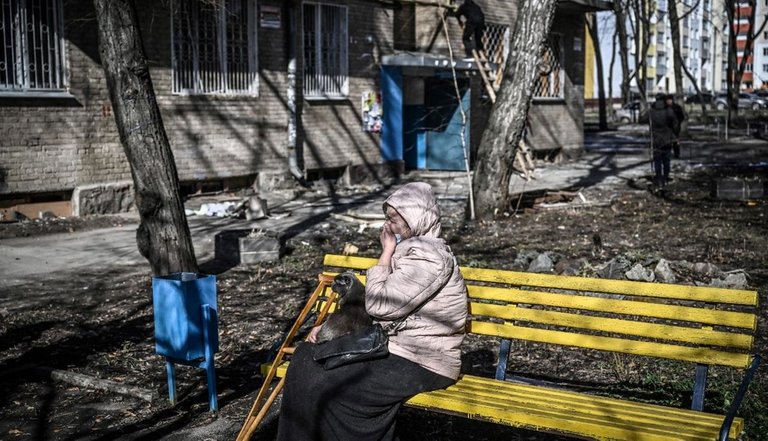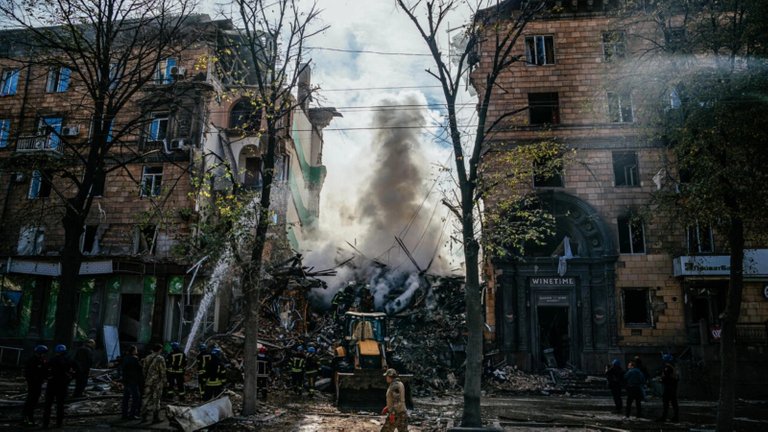After more than 7 months, the faltering Russian war in Ukraine caused major problems for Russian President Vladimir Putin, who tried to compensate for them with a series of political decisions, including the "partial mobilization" of the Russian people, interim referendums in 4 Ukrainian regions, and a nuclear threat directed to the West, its goal From all this is the support of his eroded position. But the details of Putin's plan risk creating major domestic problems.
In this context, Ilan Berman, first vice president of the American Foreign Policy Council in Washington, described Putin's mobilization campaign as an extremely unpopular endeavor that has led to the real exodus of about 3-quarters of a million Russians since it was announced in late September last September.
In his article in the American magazine "Newsweek", Berman added that this mobilization also exacerbates sectarian divisions within Russia itself, that is, between "the country's Slavic majority and the growing expatriate lower class."
To understand why, he believes that it is necessary first to understand Russia's highly turbulent demographics. The country has been on a path of continuous population decline for decades, and the Kremlin's various initiatives to increase the national birth rate have not been successful.
However, this decline is not uniform, as parts of the country's population, who are mostly expatriates, are doing relatively well, and they are classified as the fastest growing minority in Russia, where their birth rates are rising dramatically at the national level, and by 2034 it is expected to constitute 30% A resident of Russia.
Religious scholars of the former Soviet Republic of Uzbekistan were banned from participating in the Russian conflict. There are indications that discontent with Ukraine's war may fuel long-established separatist tendencies in the majority republics of the North Caucasus.
And they are not getting the status they crave. Over the past decade, Russia has moved in an increasingly authoritarian and ultra-nationalist direction, with little tolerance for citizens of different races or religions. As a result, xenophobia has escalated locally, leading to a feeling of alienation among Russia's expatriate communities. Moscow's policies in the Middle East, particularly its military intervention in support of the Syrian regime, have also helped radicalize a large part of this population.
And now Putin's war on Ukraine exacerbates matters, as the Kremlin's partial mobilization aims, in theory, for a limited call-up of reservists, regardless of race. However, in practice, the country's minorities, especially expatriates, bear the brunt of the Russian war effort, and suffer disproportionate losses as a result.
The deepening of the internal division
This was noted by the Secretary of the National Security and Defense Council of Ukraine Oleksiy Danilov: "The majority of those gathered there are representatives of the Muslim world. Their fault is that they were born on the territory of the Russian Federation, especially in Tatarstan, Dagestan and other Muslim communities."
He added that all this began to generate violent responses, whether from the expatriate minority in Russia itself, or from followers of other religions in the region. For example, the diaspora-majority republic of Dagestan in the North Caucasus has been the scene of some of the largest protests to date against Putin's mobilization order.
Religious scholars in the expatriate former Soviet Republic of Uzbekistan were prevented from participating in the Russian conflict. There are even indications that discontent with the Ukraine war may be fueling long-running separatist tendencies in the diaspora-majority republics of the North Caucasus.
In other words, in his efforts to solve one problem, raising the morale and manpower of his campaign in Ukraine, Vladimir Putin managed to create another, and his policies contributed to deepening the internal division between the Russian government and the country's fastest-growing minority.

